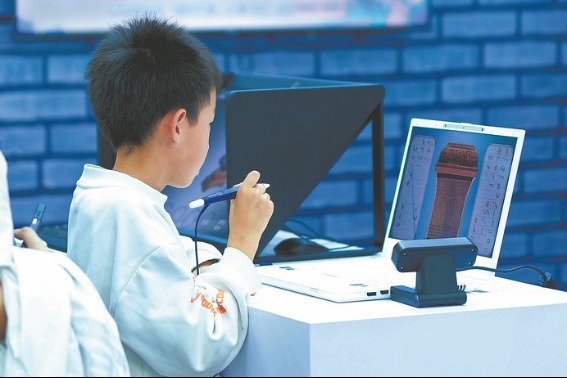A trio of techniques to maintain fitness


Sleeping well counts
Sleep is of vital importance to help maintain one's health and traditional Chinese medicine has extolled the virtues of a good night's rest for centuries.
The Yellow Emperor's Inner Classic (Huangdi Neijing) is one of the oldest Chinese books on health preservation, according to which, the energy of each of the 12 meridians is at its strongest when on duty for two hours, completing a full 24-hour cycle every day.
1 am-3 am: Liver recovery time. The liver regulates the body's blood flow and acts as an agent for detoxification.
3 am-5 am: The liver pushes new blood to the lungs and through the entire body. Deep sleep is vital at this time.
5 am-7 am: The large intestine is king. Best time to get up and drink a cup of warm water to aid the release of toxins.
7 am-9 am: Best time for the stomach to take its first meal.
9 am-11 am: The brain is most active, and thus the best time for work and learning.
11 am-1 pm: The heart recovery time. We should relax the spirit, our breath and muscles. Taking a nap is a good way to achieve this.
1 pm-3 pm: The small intestine gets to work. It's best to eat lunch before this time, so that the small intestine can absorb nutrients in its most energetic state.
3 pm-5 pm: The bladder's on duty. Drink more water to detox. The mind is the most clear-headed and has the best memory-the second prime time period for work and study.
5 pm-7 pm: The kidneys start their shift. Best time to relax without heavy exercise.
7 pm-9 pm: The pericardium meridian time, suitable for taking a walk and chatting.
9 pm-11 pm: The sanjiao (triple heater) meridian on duty, the best time to slow down and rest. Sanjiao-the connective tissue dividing up the Thoracic, Abdominal and Pelvic cavities-is key to the passage of heat and fluids through the human body.
11 pm-1 am: The gallbladder meridian time, when the yin and yang energies converge and the yang's growth gains momentum. An adequate stock of blood is the base of a healthy body. It is the ideal time to reap the health benefits of a good sleep.
Exercises of qi
Baduanjin, literally meaning "eight-section brocade", one of the most common forms of Chinese qigong exercise, is being favored by more and more Chinese. The name generally refers to how the eight individual movements characterize and impart a silken quality to the movement of the body and its energy.
Baduanjin is one of the oldest health and fitness regimens in China, being originally created over 800 years ago during the Song Dynasty (960-1276).
Modern Baduanjin, however, has been simplified to be very easy to master. No equipment is necessary and it requires very little space or, perhaps most importantly in our fast-paced lives, time. In fact, it's perfect for office workers, as they often suffer from lower back and cervical pain caused by hours sitting in front of the computer. You will find numerous easy-to-follow instructional videos demonstrating Baduanjin with a simple search online.
























